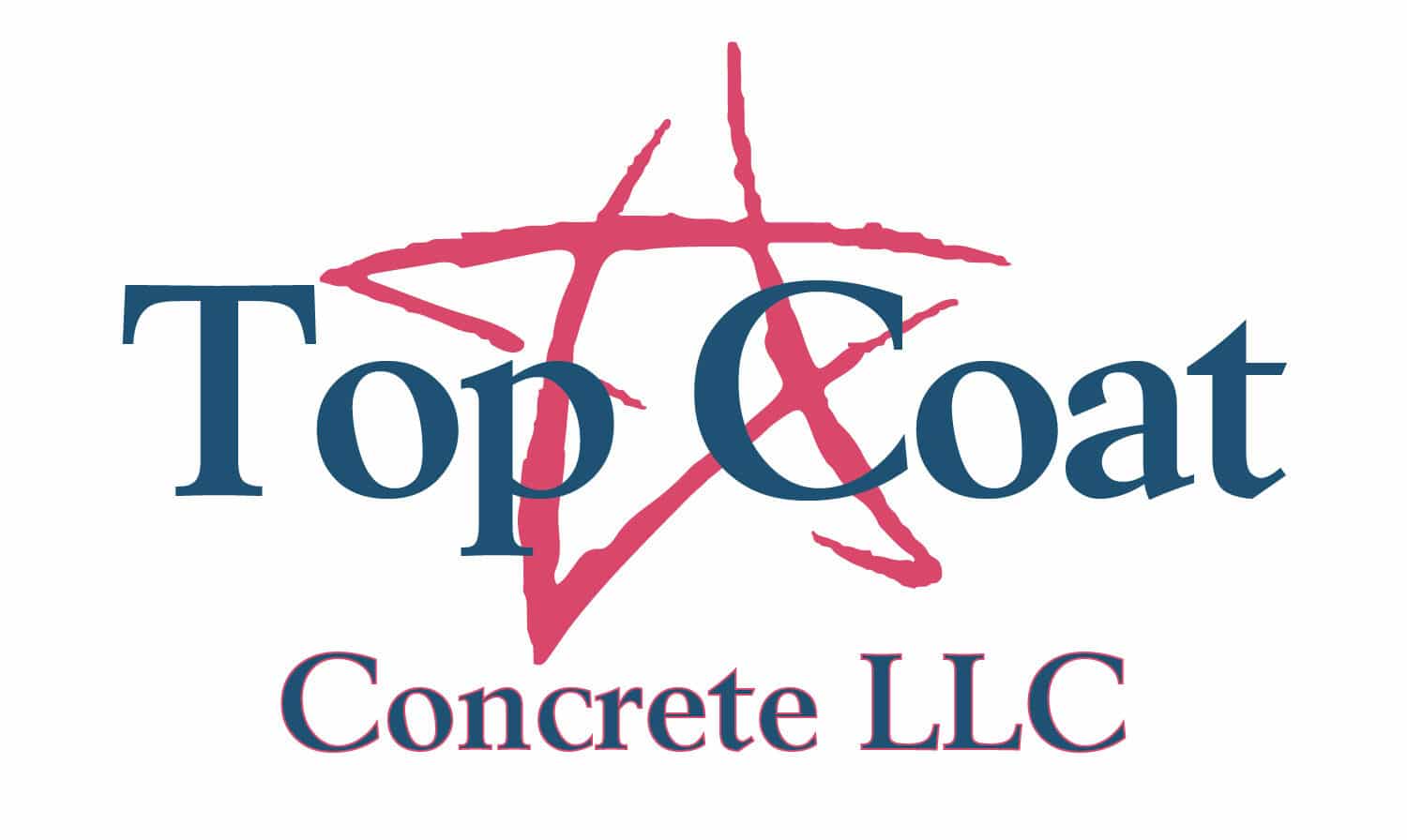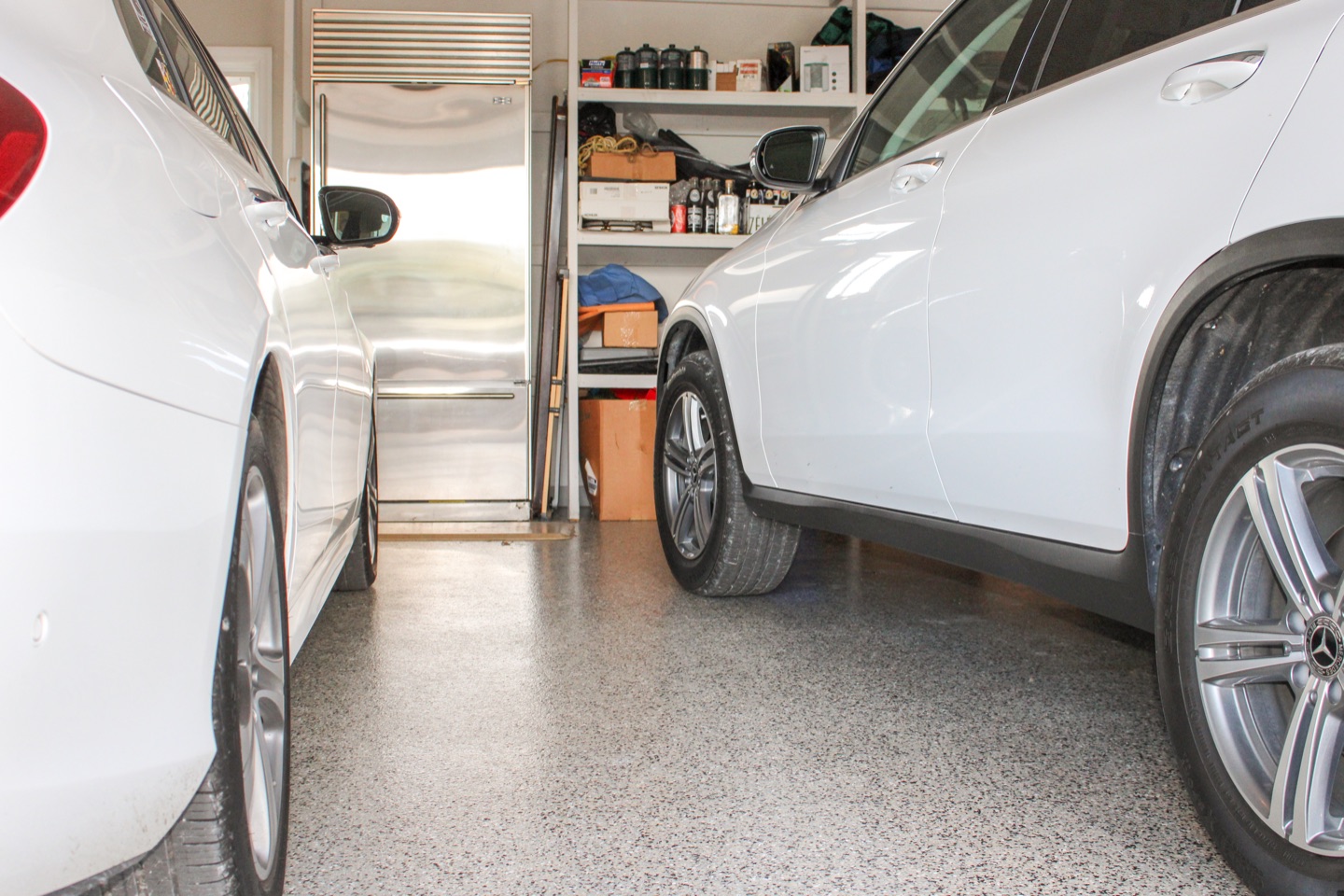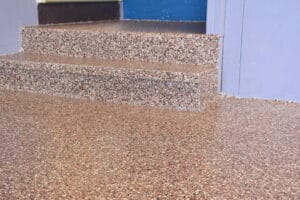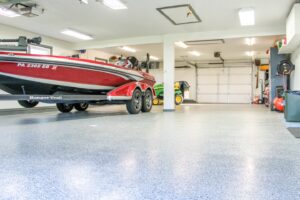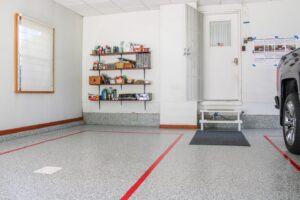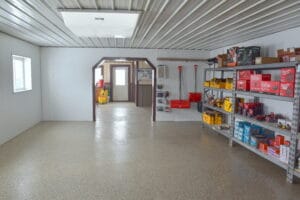What is the Best Basement Floor Coating Option?
A great question, and one we answer often, is what’s the best floor coating for a concrete basement floor?
In reality, most prospective customers don’t ask: they assume “epoxy” is their best bet. And that’s what they ask for!
And while epoxy can be a great coating for concrete basement floors, it’s no longer the “go-to” that it once was. That’s for a variety of reasons. Here’s why polyasparticcoatings are the absolute best when it comes to coating a basement floor.
Why Coat Your Basement Floor In The First Place
We hear customers talk about a variety of frustrations when they call about a basement floor they’re considering coating.
It’s cracked and pitted, and it collects dirt and pet hair.
It’s hard to clean and creates dust: “No one wants to go down there in their socks!” they lament.
Their uncoated concrete floor is so bad, many say, that their otherwise functional basement is simply unusable for anything but storage.
We love hearing these problems because a good floor coating can be an affordable and great-looking way to restore a basement and make it functional once again!
A great basement floor coating will be:
Easy to Clean
With a smooth finish that seals a previously pitted or dusty concrete floor, you’ll generate less dust and dirt in the basement in the first place, plus your new coating is incredibly easy to clean. Sweep it with a broom, wash it with a mop – it doesn’t get a whole lot easier than a smooth, fine finish with a floor coating.
Antibacterial
Most basement floor coatings will be antibacterial and antimicrobial meaning they won’t breed or harbor pathogens in the same way that carpet or even grout between tiles can.
Looks Great
A well-done basement floor coating looks great, providing a seamless, elegant, and modern aesthetic that can dress up otherwise drab spaces. You’ll be ready to host – or just send the kids down – in no time.
Flooding and Moisture Control
A quality basement floor coating will help to reduce moisture penetration from below the basement, as well as reducing flooding problems.
Now that you know the benefits, let’s take a look at the options.
Basement Floor Coating Options
Floor Paint
Floor paint has stronger adhesive qualities than wall or ceiling paint and is formulated to withstand traffic over time. But, it’s far from bullet-proof, and while inexpensive to apply yourself, most discerning homeowners will be disappointed within a few years.
Pros of Floor Paint: Cheaper materials and easy to do yourself (DIY) with standard painting supplies.
Cons of Floor Paint: Not scratch-resistant, peels and chips easily, and generally looks cheap compared to the more robust epoxy and polyaspartic coatings. Floor paint also will not help with moisture.
Epoxy
Epoxy was the go-to rocket-proof floor coating of choice for many years. As a two-part resin, it dries incredibly hard and can provide a great-looking, smooth solution to bare concrete in basements. The major drawback to epoxy in a basement is that it’s not UV (ultraviolet) stable and will yellow with time and exposure to sunlight from windows.
Pros of Epoxy: Moderately priced and doable for many weekend warriors (though be ready for a mess when applying epoxy). Incredibly hard and will resist pitting, scratching, and peeling. Looks great when properly applied.
Cons of Epoxy: Epoxy’s two primary drawbacks are that it is not UV stable, and it is so hard that it can actually crack if the space is not conditioned (heated and cooled).
Polyaspartic
Polyaspartic coatings have replaced epoxy among professional installers because of their wide versatility, slight flexibility, and UV resistance. Polyaspartic is as hard as epoxy, but with some improvements.
Pros of Polyaspartic: UV resistant and incredibly tough. Because polyaspartic has the ability to flex with the natural contraction and expansion of concrete, it tends to hold up better than epoxy over time. Looks great and lasts for years.
Cons of Polyaspartic: Generally not recommended for DIY-ers, and polyaspartic can be a little more pricey than epoxy.
Basement Floor Coating #1: Polyaspartic Coatings
Polyaspartic coatings are the number one choice for homeowners who want a lasting, durable concrete floor finish in their basement.
With dozens of color options and the ability to add unique aesthetic flourishes like chips, a professionally installed polyaspartic coating will hold up for years with an easy-to-clean finish and remarkable durability. Because polyaspartic flexes slightly and will not yellow with consistent sun exposure, it’s ideal for daylight basements or anywhere that is not completely conditioned.
Polyaspartic coatings by Top Coat Concrete are an affordable option compared to carpet, vinyl floor, or even tile, lasting for years of abuse and with virtually zero ongoing upkeep. There is no risk of moisture problems beneath the coating, as with the flooring options above.
How much does a basement floor coating cost?
Basement floor coating pricing varies from $5 to $12 per square foot.
When is the best time to apply a basement floor coating?
Winter is a great time to coat your basement floor! We find that sometimes humidity in the summer can add challenges to the installation process.
If you ask any professional basement flooring expert, polyaspartic is the go-to. If you have questions or concerns about your basement floor, we’d love to help. Call today to get a quote on your Pittsburgh basement floor!
